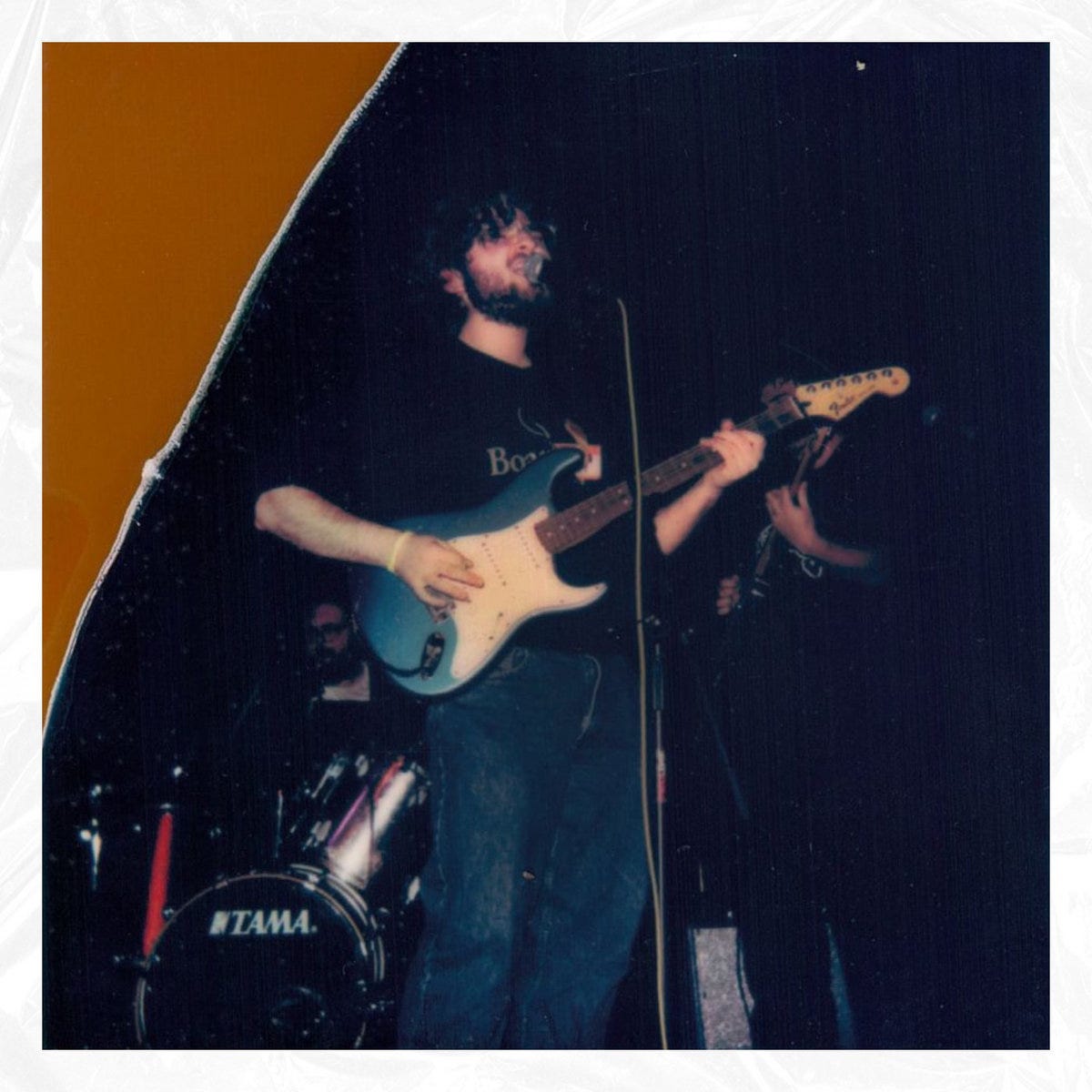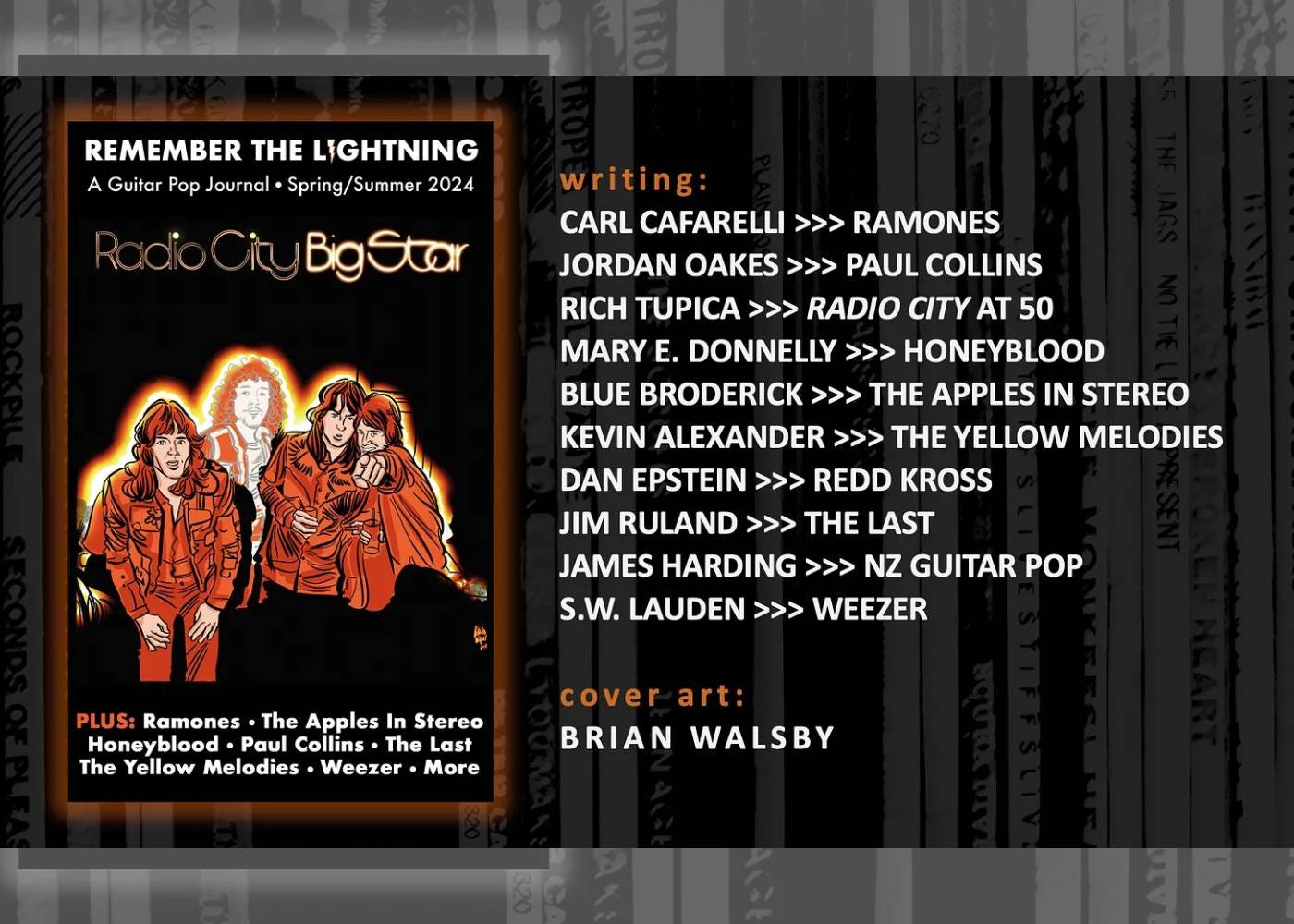Interview: Ethan Beck & The Charlie Browns
Discussing Their Excellent Debut Album, 'Duck Hollow'

Ethan Beck knows power pop, but that’s only part of the formula for his band’s excellent debut album.
A lifelong music fan and writer for publications like Paste, Bandcamp and Vice, Beck has immersed himself in a variety of genres that orbit around pop rock. He counts Fountains of Wayne and Bruce Springsteen among major inspirations, both of which are on full display throughout the 11 tracks on Duck Hollow.
“If you feel a deep, stomach-churning sense of longing, one of the easiest ways to communicate that is pop music. It’s my goal to keep finding more and more specific ways to communicate that,” Beck told me for the interview below.
To understand this satisfying mix of guitar pop and heartland rock, look no further than the album’s lead single, “Fear and Loathing in Gramercy.”
“There is far, far more overlap between heartland rock and power pop than I think most people are willing to admit,” Beck said.
“There’s the great John Mellencamp song ‘Hand To Hold On To,’ which could be a cut by The Records if it had a few more harmonies. The sugary, clean guitars are there, the hook is stark. Springsteen, particularly around The River-era, has plenty of moments like that too. ‘Sherry Darling,’ ‘The Ties That Bind,’ ‘Crush on You’ all could be power pop songs if they had less saxophone wailing and a little less bar band energy.”
I connected with Ethan Beck by email as he and his band continue to perform around the Northeastern U.S. this summer, with plans to record new music in the near future.
Ethan Beck Interview
Congrats on the great new album. Can you tell me a little about how Duck Hollow came together?
Ethan Beck: Thanks so much! For me, Duck Hollow is sort of a checkpoint. It’s all of the early songs I’ve written that I felt were cohesive enough and strong enough to make it out into the world. Some of these songs, particularly ‘And And And,’ ‘Pair of Twos,’ and ‘North’ are extremely old and have been rewritten time and time again.
Duck Hollow started properly when I left Pittsburgh, where I was raised, for college in New York and I started listening to an extraordinary amount of power pop. I was feeling a lot of big, complicated things about being away from home for the first time and the dorky, freaked-out narrators of guitar pop resonated easily. The songs I was writing were attempts at writing particular styles and sounds, like ‘Monk Eric,’ which is still amongst my favorite songs I’ve ever written. It started as an attempt to write a sort of Fountains of Wayne-esque song where the comedy and tenderness comes from seeing an exaggerated caricature of people that you still might relate to.
After writing ‘Monk Eric’ and ‘Matthew Song’ at college, I came back home for the summer and started playing shows with my friends as The Charlie Browns. Now, two summers later, we’ve got the songs recorded in a way I’m happy with and out now.
The album's lead single, "Fear and Loathing in Gramercy," is an interesting mix of guitar pop and heartland rock. Is that a fair description? How do you think about (or explain) the style of music you write/play/record?
Ethan Beck: I grew up on the kind of classic rock that often came back to good hooks. The Beatles, Fleetwood Mac, and The Who were my big three when I was 13. I’ve always gone through really intense phases of what I thought I wanted my music to sound like, mostly stemming from those original influences. When I was a teenager, I spent a lot of time listening to Bruce Springsteen and John Mellencamp because of their ability to balance detailed storytelling and choruses. In Springsteen’s case, I liked his grandiose ambition that gave us songs like ‘Jungleland’ or ‘Rosalita.’ I have always been really attracted to seeing that kind of ambition in music, like the songwriter is sweating to make it work.
I’ve tried to figure out what separates Bruce and John from, say, 20/20 or Shoes. The answer is that Springsteen brought it. These heartland guys were sweaty, cool as hell, and genuine, not as snide and immature as my guitar pop heroes are. And that’s fine. It’s good to have great music that captures immaturity, but I’m hoping my music sounds more like the latter.
I hear nods to other artists from Teenage Fanclub and The Replacements ("The Kaufman Family Primetime Special," "Wabash Tunnel") to Fountains of Wayne and 2nd Grade ("Monk Eric," "Brenda and Eddie") throughout the album. Who are among your major influences?
Ethan Beck: Fountains of Wayne are a big touchstone for this album, as I said about ‘Monk Eric,’ and The Replacements are always a group I look to. Paul Westerberg’s lyrics are always something to try and emulate, particularly the ways that he is so in tune with his song’s characters and the ways their lives restrict and bump up against them and knock them down. I’m thinking about the line where Westerberg distinguishes between fathers and dads on ‘Androgynous,’ or the last verse of ‘Bastards of Young,’ or the sympathetic portrait of a loveless marriage on ‘Little Mascara.’ He just seemed to know these people so well.
I like that Matthew Sweet knew he had to make his songs sound cool so he didn’t sound completely insane, so I’m always trying to emulate that. Everything Richard Lloyd is doing on Girlfriend is how I want my guitars to sound. The chunky, mechanical pop sound of The Cars’ first album is a big touchstone here too, same with Cheap Trick. Also just a ton of Motown, since those songs are so light but they manage to capture the universe in their teenage pop confessions.
At the time of writing these songs, I was listening to a ton of Liz Phair and her heartbreaking, infectious songs. I listened only to Liz Phair, Elvis Costello, and Pulp in the summer of 2022.
“Does This Bus Stop At Douglas Street" is a real stand out track for me. I'm a sucker for the mopey lyrics and mid-tempo groove. What was the inspiration for that song?
Ethan Beck: ‘Douglas Street’ is totally where that Teenage Fanclub influence comes in. ‘Sparky’s Dream’ was my most listened to song of the year I wrote it. I just wanted a good, sturdy song about romantic dissatisfaction. The hook of the song comes from our guitarist Atticus dubbing me a ‘temporary boyfriend’ a few years ago, which is such a sad little way to describe someone. I wrote it down immediately. '
Initially, I thought the song wasn’t substantive enough but we tried it out for this show in December 2022 and it just exploded. We played it and kids were moshing on the final chorus, which sounds so funny to me now. To rectify any possible fears about it being too lightweight, we loaded up on harmonies and our bassist Nano laid down a crazy part for the bridge on the record.
You're also a music writer. Do you think your critical thinking about music shows up in your songwriting?
Ethan Beck: Most of songwriting is just stealing and rewriting, considering the same things again and again from a new angle. I want my pop music to sound as jubilant or heartbreaking as possible so I’m going to look to the pop of the past to figure out how to get there. I wrote recently about Big Star’s 50th anniversary of Radio City and I made a similar point, that Chilton’s primary outlet for those big feelings was making a song like ‘Daisy Glaze’ or ‘Back of a Car’—even though the latter is apparently mostly a Chris Bell creation. In many ways, I feel like that piece encapsulates the many things I want to get out of making music.
Also, I keep writing about indie rock that has these gnarly, sometimes bodily details that help distinguish the songwriting and so I’m trying to incorporate that in my songwriting. Some of my recent favorites are Feeble Little Horse and Marika Hackman, both of whom I’ve written about in the last year, but Liz Phair has been doing that expertly for decades. There are lines on the record about taking medicine in Rite Aid or sweaty guys. I think that specificity is how they become good songs. I just think the sweaty guys line is funny too.
I enjoyed your recent Bandcamp write up about The Comets. Are you a fan who actively seeks out obscure power pop bands?
Ethan Beck: After spending years listening to power pop, I’m starting to cool down a little bit. I think Neil Young being back on Spotify helped because I’ve been going through his discography diligently and steadily. If I spend too much time listening to power pop this spring, I start to feel a little lightheaded and sweaty. Still, it’s my area of interest, so I try to seek stuff out as much as I can.
I have been spending a lot of time with The Jacks after someone recommended them to me. Any Trouble is pretty great, but especially ‘Yesterday’s Love’ has such momentum to it. There’s a lot of scattered singles that I’ve been really into This amazing Holly & The Italians song called ‘I Wanna Go Home’ that feels like an ‘80s high school movie anthem; or the delicate, acoustic guitar pop of ‘Do I Get So Shy’ by Shoes which completely rocked my world. The fading but elongated ‘ahs’ on the verse of ‘Do I Get So Shy’ are genius.
Best new power pop project of the past few years is Sharp Pins for my money, they have these amazing spurts of Byrds-y and Beatles-y hooks, especially on ‘Bye Bye Basil’ which is last year’s best song. I spend a lot of time listening to the great Brad Shoup’s playlists, where he manages to curate the best power pop by decade. He's also just one of the best music critics working. If I had a publication, he’d be my first hire.
What's next for Ethan Beck & The Charlie Browns? Any plans to tour?
Ethan Beck: We were really lucky to play a really great release show for our record in Pittsburgh at Roboto, which is a venue that we all grew up playing. I got to play ‘Thunder Road’ by Springsteen which had been on my bucket list for a long time.
We’re going to keep playing steadily in Brooklyn and Pittsburgh. Hopefully we will be able to do a run across the east coast at some point, maybe after we put out some more music. We’ve been playing a lot of new material live, so I’d like to get working on another album. I’m hoping to make it a lot fuzzier-sounding and to try and steal some ambition from Springsteen or The Hold Steady or anyone else who managed to make those grandiose rock records that I love.
The third volume of our semi-annual music journal features some of today's best music writers and the most talented modern musicians:
Carl Cafarelli on Ramones
Jordan Oakes in Conversation with Paul Collins (The Nerves/The Beat)
Rich Tupica on Big Star's Radio City
Mary E. Donnelly in Conversation with Stina Tweeddale (Honeyblood)
Blue Broderick on The Apples in Stereo
Kevin Alexander on The Yellow Melodies
Dan Epstein on Redd Kross
Jim Ruland on The Last
James Harding on New Zealand Guitar Pop
S.W. Lauden on Weezer







I wish their album was available on CD!